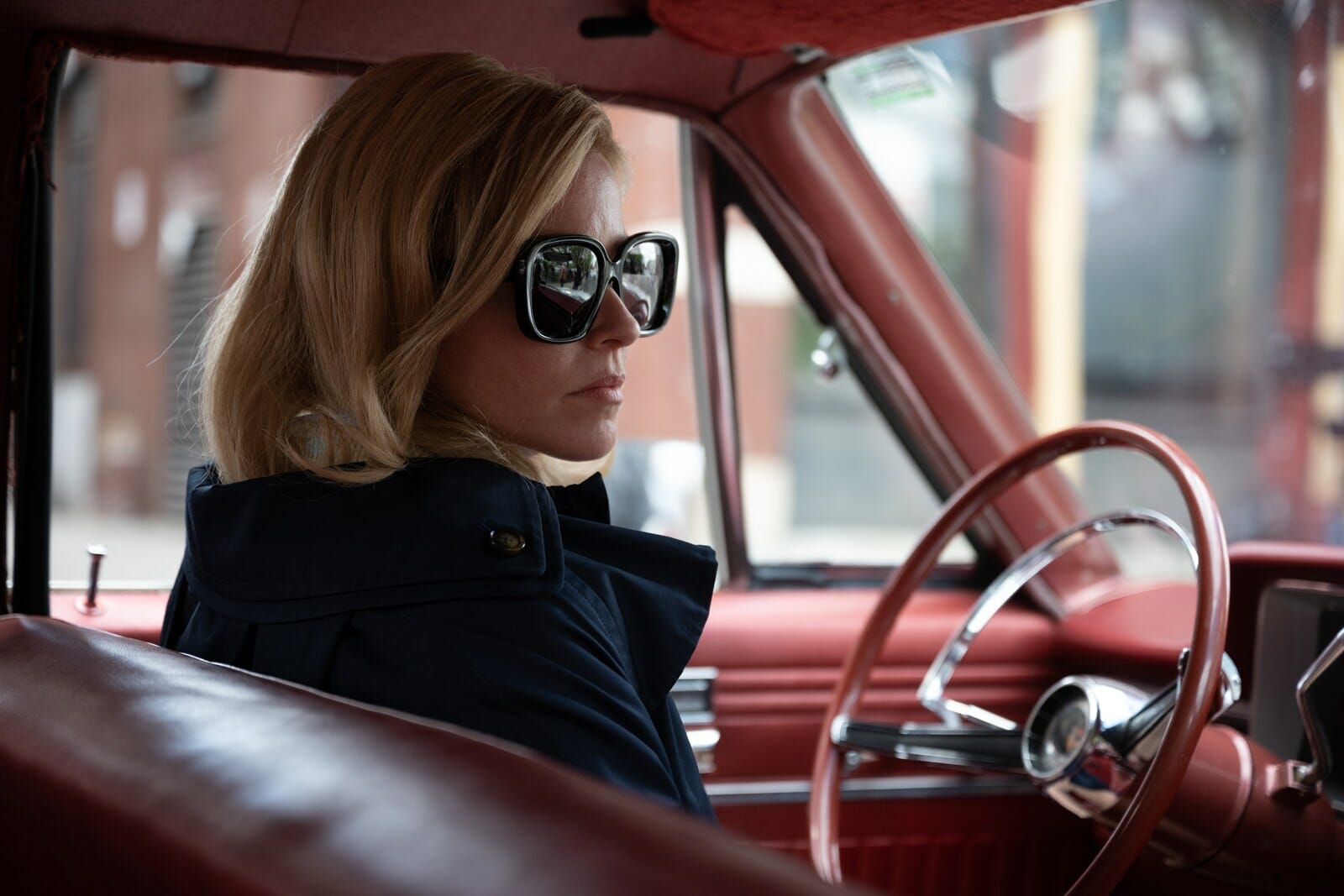Who is Jane? We all should be. The Jane Collective was a group that ran out of Chicago from 1969 to 1973, helping women who needed abortions at a time when abortion was illegal? Hmm, convenient timing for a 2022’s Call Jane to come to the screen, as Roe v. Wade was overturned. Timing aside, the movie still stands as a testament to the work of these amazing women, doing the hard work behind the scenes they never get credit for but so rightly deserve.
Not all of the Janes started out as hippies. Take Joy (Elizabeth Banks). A housewife to Will, a partner at a law firm, Joy is happy to use her brains on some of the law work, cook, and raise her teen daughter Charlotte (Grace Edwards), with another baby on the way. However, horrible fate intervenes, as Joy’s pregnancy risks a heart attack and has a 50% survival rate. Because abortion’s illegal the means to terminate a pregnancy are not possible at this time. Desperate, Joy sees a flier to call “Jane,” which introduces her to a group of women led by Virginia (Sigourney Weaver) who help as many women as get the abortions they need/want.
There’s not a lot of subtlety in Call Jane. It’s your classic “issue movie” Oscar bait, and it knows it. The movie goes for some big grand speeches every 30 minutes or so about what you’d expect: the plight of poor women, the oppressiveness of the patriarchy, the need for progress, etc. These moments are very hit and miss in their effectiveness, because the audiences for those speeches aren’t always for the characters; they are for you and me, the viewer, in hopes we are inspired to get up and do something about our awful societal predicament. Those near 4th wall breaking speeches don’t really work because they take you out of the story, the movie has worked hard to get you into. The ones that do work are moving because of how grounded they are: like when the women are arguing which women are the most helpless because they can only help so many.
When Call Jane goes smaller and gets into the details of organizing an illegal abortion ring, the movie earns the importance it craves. You realize quickly how unforgiving the whole thing is, as Joy goes about all other options before the Jane service. Even the Jane service is built on a house of cards, with only one doctor who’s money hungry and threats around every corner. The movie smartly plants us in Joy’s perspective, as we see both sides of the Janes: a woman getting an abortion, and one helping out. Joy quickly learns, probably like most women, they have no idea what their reproductive system looks like, so she goes about learning more on the subject, and along the way, her new purpose in life. That new purpose threatens her livelihood as her conservative husband and daughter wonder why mom is going to “art class” all the time. But Joy has gained so much confidence in her new life, she’s ready to face all of these obstacles. The movie’s tone goes from fear towards something wonderfully uplifting, as the Jane collective finds ways to help more and more women using their negotiating tactics and brilliance maneuvering around the law.
Unfortunately, the wonderful efforts of the Janes might be needed again sometime soon. I hope some amazing reformer sees Call Jane and inspires them to start something similar in their state where abortion might not be legal. And if you’re not that ambitious, like me, remember, you can still be a Jane by simply listening and trying to understand how hard it can be sometimes to be a women stuck in a society that doesn’t value her the way it should. That’s the only way Call Jane can win me back after maybe the worst example of fake Chicago in a movie I’ve ever seen.

